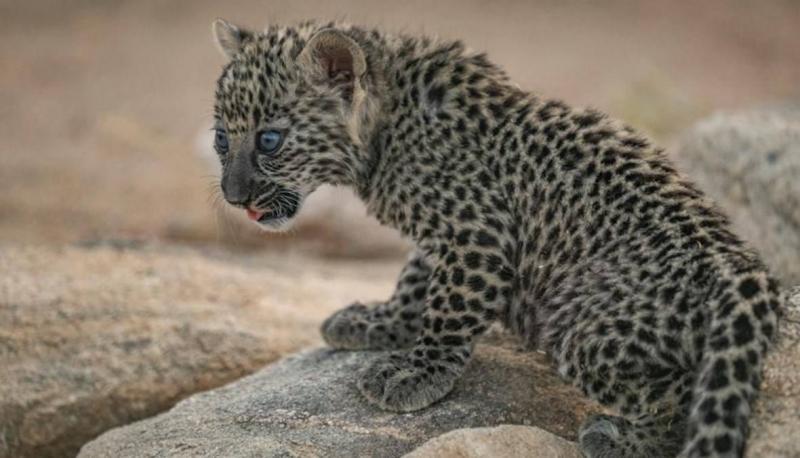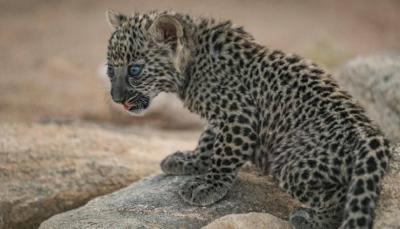The Royal Commission for Al-Ula Governorate announced the birth of seven young Arabian leopards this year, in a move that confirms the commission's efforts to achieve the objectives of ecological rehabilitation and protect the Arabian leopard from extinction. The leopard cubs (the term used for young Arabian leopards, with the singular being ‘Hirmas’) were born at the Prince Saud Al-Faisal Wildlife Research Center in Taif Province over the past five months, bringing the total number of Arabian leopards to 27. This marks a doubling of the leopard population since the Royal Commission launched its Arabian leopard project in 2020.
The announcement coincides with the United Nations designating February 10 each year as World Arabian Leopard Day to raise awareness about conserving the Arabian leopard from extinction and to highlight the goals of the Arabian Leopard Fund. According to the International Union for Conservation of Nature, these leopards are classified as critically endangered, with fewer than 200 Arabian leopards remaining today, primarily due to the loss of their natural habitats and poaching over the years.
The commission, through its strategy to conserve and protect the Arabian leopard from extinction, aims to rehabilitate ecosystems in alignment with the "Saudi Vision 2030" objectives, as well as to enhance the natural environment in accordance with national goals, including the "Green Saudi Arabia" initiative, which aims for 50% of Al-Ula’s area to be designated as protected natural reserves. Additionally, the commission is training the sons and daughters of the Kingdom in Al-Ula for roles that support the preservation of these protected areas.
The Royal Commission for Al-Ula continues to advance its strategy concerning the Arabian leopard, which includes various community aspects, such as training a number of the nation’s youth in Al-Ula for tasks that support the conservation of natural reserves. Al-Ula has historically been a native habitat for the Arabian leopard, as reflected in the rock engravings found in various sites within the governorate. This is clearly seen in the commission's strategic pillars focused on caring for the environment and nature, as well as preserving heritage and antiquities, making Al-Ula the largest living museum in the world.




